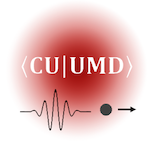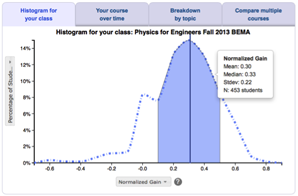
Developed by: Benjamin W. Dreyfus, Jessica R. Hoehn, Erin Ronayne Sohr, Noah D. Finkelstein, Ayush Gupta, Andrew Elby, Kathleen Hinko

middle schoolhigh schoolintro collegeinter-mediateupper levelgrad school other





Overview
What? Guided-inquiry worksheets to support students in transforming their ontological conceptions about quantum phenomena: their sense of whether something is a particle, a wave, or some other kind of thing. Designed for use in a sophomore-level modern physics class as a supplement to regular instruction.
Why? These tutorials can support deeper understanding of quantum phenomena and spark productive reasoning for non-physics majors or for physics majors in classes with more mathematical sophistication.
Why not? An instructor might not want to use these if their objective is to focus on quantitative problem solving.
Student skills developed
- Conceptual understanding
- Using multiple representations
- Building models
- Metacognition
Instructor effort required
- Medium
Resources required
- Computers for students
- Tables for group work
Resources
Teaching Materials
You can download all the Tutorials on thinking about quantum entities for free from their PhysPort curriculum page.
Research
This is the third highest level of research validation, corresponding to:
- at least 1 of the "based on" categories
- at least 1 of the "demonstrated to improve" categories
- at least 1 of the "studied using" categories
Research Validation Summary
Based on Research Into:
- theories of how students learn
- student ideas about specific topics
Demonstrated to Improve:
- conceptual understanding
- problem-solving skills
- lab skills
- beliefs and attitudes
- attendance
- retention of students
- success of underrepresented groups
- performance in subsequent classes
Studied using:
- cycle of research and redevelopment
- student interviews
- classroom observations
- analysis of written work
- research at multiple institutions
- research by multiple groups
- peer-reviewed publication
References
- B. Dreyfus, E. Sohr, A. Gupta, and A. Elby, “Classical-ish”: Negotiating the Boundary between Classical and Quantum Particles, presented at the Physics Education Research Conference 2015, College Park, MD, 2015.
- E. Sohr, B. Dreyfus, A. Gupta, and A. Elby, “Because math”: Epistemological stance or defusing social tension in quantum mechanics?, presented at the Physics Education Research Conference 2015, College Park, MD, 2015.





